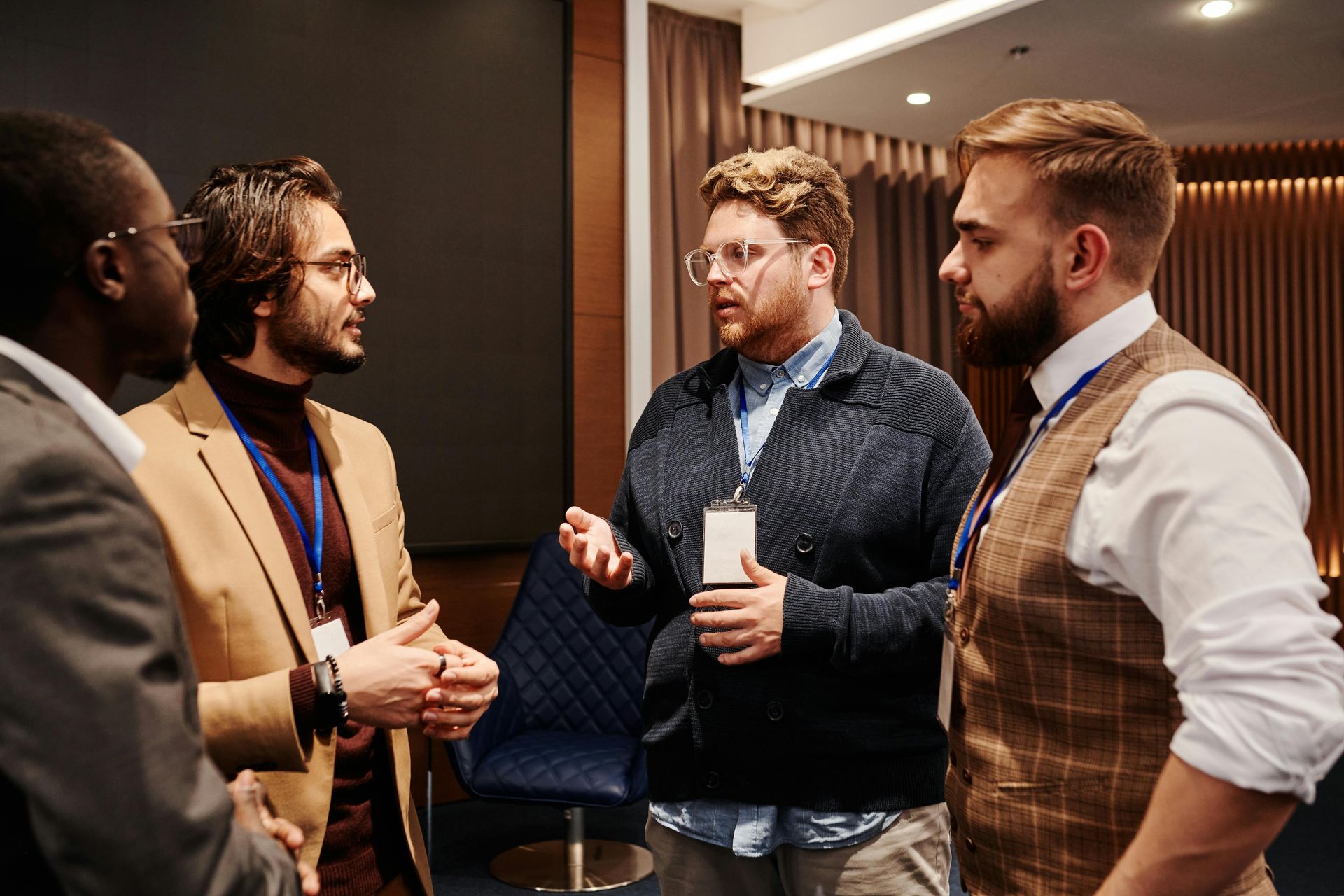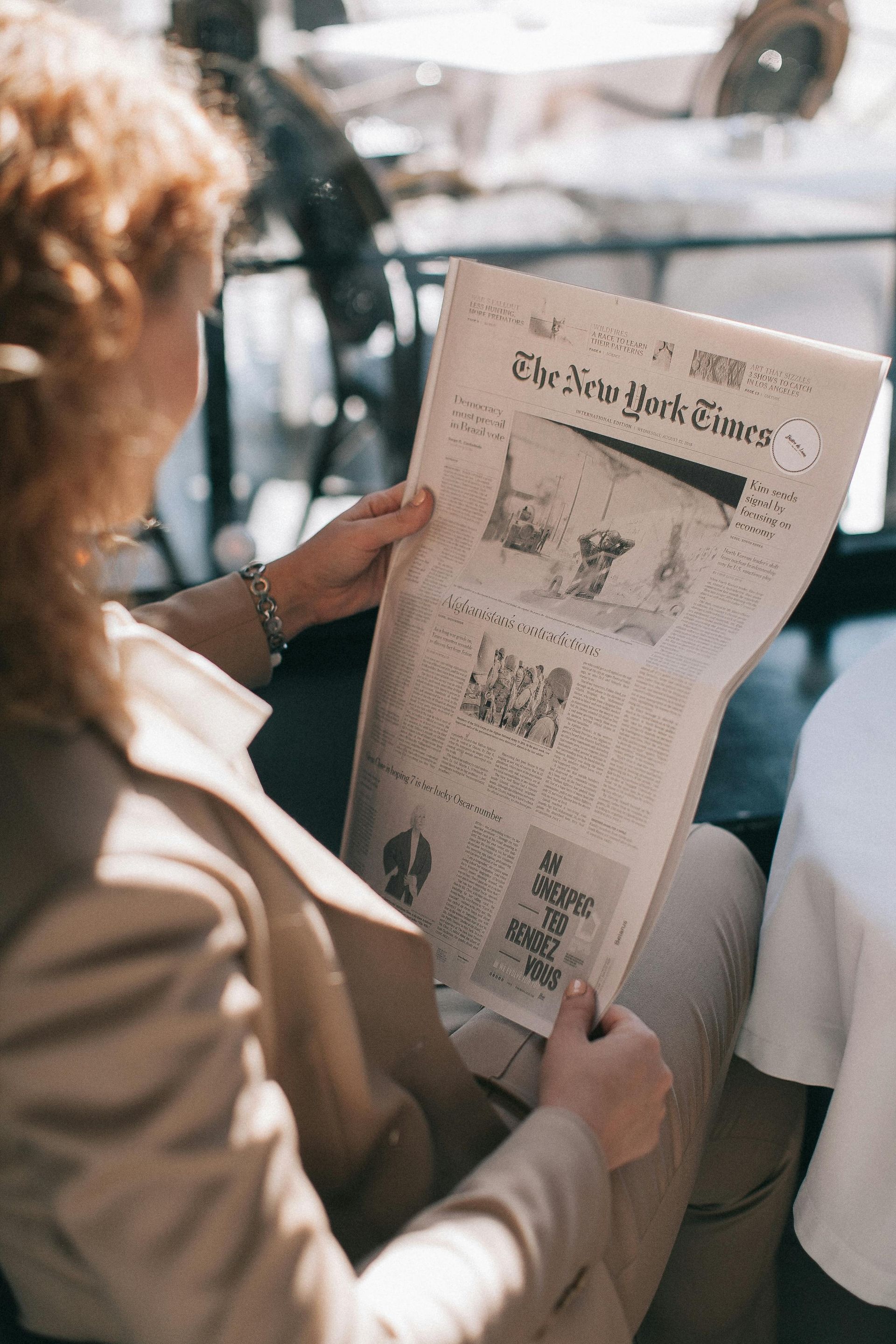Contact Us
Phone:
Email:
Location:
1234 Street Name, City, State 12345
Hours:
Mon - Fri 8am to 4pm
How to Really Fix American Higher Education
Our universities must return to their original purpose: to seek the truth and give youths the knowledge they need to flourish. Here are four ways to do that.

By Bari Weiss
The Free Press
December 11, 2023
On Saturday, less than a week after the most sordid congressional testimony in recent memory, University of Pennsylvania president Liz Magill and chairman of the board of trustees Scott Bok resigned. Already, many are making the case that their resignations aren’t a moment of victory, but rather another sorry example of cancellation.
That’s the debate some editors at The Free Press are having right now in Slack.
Our own Peter Savodnik believes that Magill’s resignation is lamentable: “Her resignation is a blow to academic freedom. It amounts to little more than a cave—yet another prominent American institution succumbing to the angry mob.” For Jewish students, he argues, “it will make it worse by making an already illiberal academic environment even more illiberal.” (Read Peter’s essay here.)
I agree with Peter that being a good steward of the university’s brand and mission—and furthering that brand and mission through fundraising—is the main job of a university president. But Magill didn’t lose her job because she was canceled; she lost her job because she revealed in front of the country that she was not up to the task. She embarrassed Penn. And in the process of that hearing she exposed the grotesque hypocrisy not just at her university, but inside modern American higher education.
A quick thought experiment: imagine if large numbers of students and professors had marched through the campus of Penn over the past two months saying that all black people should go back to Africa and whoever remains should be subjected to genocide. Should the president of Penn defend those people merely as exercising their rights to free speech?
I think that it would be monstrous to do so.
It doesn’t mean that students wouldn’t have the legal right to scream for a violent uprising against Jews or anyone else. Indeed, as the good lawyers at white-shoe law firm WilmerHale clearly pointed out to Magill and the other presidents who appeared before Congress, legally, of course they do. But the job of a university president is not merely to highlight basic constitutional rights. It’s also to form and lead a community with a singular aim: the pursuit of truth.
My main point here is that Magill’s resignation, by itself, doesn’t solve anything. But it—along with the turmoil at Harvard—marks an important moment. Now everyone can see how deeply academia is broken. And you can’t fix something until you look, carefully and realistically, at the thing itself.
Today we are publishing two pieces that go a long way toward doing so.
The first, a searing essay by Axel Springer CEO Mathias Döpfner, argues that “all parents in the world who want to see their children grow up in a free society marked by tolerance and humanity should recommend their children not study at these places of shame.”
The second, by historian Niall Ferguson, looks back at how Germany’s universities became the handmaidens to Hitler. “Anyone who has a naive belief in the power of higher education to instill morality,” he writes, “has not studied the history of German universities in the Third Reich.”
These are both must-read pieces.
When you read those essays you will wonder: What can be done? How can we fix this enormous problem?
My view is that, above all else, we must focus on returning American higher education to its original purposes: to seek the truth; to teach young adults the things they need to flourish; and to pass on the knowledge that is the basis of our exceptional civilization.
To do that, four things must be done.
End DEI
The right response to pervasive antisemitism on campus isn’t to assign Jews protected status alongside other minorities—or to limit anti-Jewish speech beyond what current law already prohibits.
The solution to present discrimination isn’t more discrimination. And it is certainly not for the Jews who have been discriminated against inside the current DEI regime to beg for better placement inside its corrupt hierarchy.
I repeat—because it bears repeating—attempts to expand the DEI bureaucracy to encompass Jews are bound to fail because Jewish identity undermines the whole woke progressive framework. Is Judaism a race? If so, what color, since that’s of course very important? Or is it a religion? Or an ethnicity? Or a culture?
Jews are, by their very existence, an affront to this crude ideology.
So the only meaningful response starts with dismantling the DEI regime that has enforced an illiberal (and antisemitic) worldview at nearly every American university. That means stopping the hiring of DEI administrators and reallocating the budgets of DEI offices. It means banning the loyalty oaths professors must pledge to earn a job or tenure. It means dismantling the entire DEI bureaucracy, as some states have started doing.
Diversity, equity, and inclusion are important virtues. But the DEI bureaucracy is none of those things. For more on this, please read my essay, “End DEI.”
End Double Standards on Speech
As Maya Sulkin powerfully explained for The Free Press late last week, there is a glaring double standard when it comes to speech on campus.
In 2021, MIT canceled a major lecture about climate change by scientist Dorian Abbot because a group of graduate students disagreed with his belief that hiring should be based on a person’s merit rather than their identity. That was too far for MIT. But chants of “long live the Intifada”? Kosher.
At Harvard just last year, students were told in a mandatory training session that using the wrong pronouns for a person constitutes “abuse” and that “any words used to lower a person’s self-worth” are “verbal abuse.” More: “sizeism and fatphobia,” students were told, are attitudes that “contribute to an environment that perpetuates violence.” Take a bet on whether the school has said similar things about openly antisemitic speech.
The point is that university administrators selectively and unevenly enforce codes of conduct depending entirely on the viewpoint being expressed and the identity of the person expressing it. It’s a nasty business and the congressional testimony the other day went a long way toward exposing it. We shouldn’t stop there.
Hire Professors Committed to the Pursuit of Truth (and Allergic to Illiberal Ideologies)
To return academia to its mission, professors themselves must be committed to the pursuit of truth. Specifically, universities should hire without prejudice toward political affiliation. It’s not incidental that only 1.46 percent of Harvard’s faculty identifies as “conservative,” while 82.46 percent of faculty describes themselves as “liberal” or “very liberal.”
In 2014, NYU professor Jonathan Haidt co-authored an extraordinary study which found that decreasing political diversity in the field of psychology led to less reliable research. In other words, more political viewpoint diversity means better truth-seeking even in seemingly apolitical fields.
The reality today is that many professors use their platform to preach illiberal dogma rather than to instruct on the actual subject matter of their discipline. As friend of The Free Press Caitlin Flanagan said a couple years back: “Another good cause that schools might take up is the teaching of reading and math.” Exactly right.
Eliminate the Ideology That Replaced Truth as Higher Education’s North Star
What is that ideology? And how did it come to supplant truth—the very mission of higher education? Don’t ask me. Ask current Harvard president Claudine Gay, who laid out her vision for institutional transformation, now on full display, when she was dean of Harvard’s Faculty of Arts and Sciences.
In a memo to faculty on August 20, 2020, she wrote: “The calls for racial justice heard on our streets also echo on our campus, as we reckon with our individual and institutional shortcomings and with our Faculty’s shared responsibility to bring truth to bear on the pernicious effects of structural inequality.” Gay continued: “This moment offers a profound opportunity for institutional change that should not and cannot be squandered.” More: “I write today to share my personal commitment to this transformational project and the first steps the FAS will take to advance this important agenda in the coming year.”
It’s really worth reading the whole thing to understand how things like the pursuit of “antiracism” and the study of “indigeneity” and “migration” and other fringe topics became core to Harvard’s mission. If you wonder how it is that Harvard gave 79% of students As (at least as of 2021) consider that grades at such institutions are no longer a measure of excellence or learning, but a measure of political adherence.
The point here is that even if Claudine Gay follows Liz Magill’s lead and resigns, it won’t make a difference if the person who replaces her upholds the same ideology so powerfully captured in Gay’s own memo.
Fixing what’s broken is one solution. The other solution is to build new things.
Two years ago, Pano Kanelos, then president of St. John’s College, picked up and moved his family to Austin to build a new university. He announced the audacious project in our pages:
“At some future point, historians will study how we arrived at this tragic pass. And perhaps by then we will have reformed our colleges and universities, restoring them as bastions of open inquiry and civil discourse,” Kanelos wrote. “But we are done waiting. We are done waiting for the legacy universities to right themselves. And so we are building anew.”
Last week I toured UATX’s building in downtown Austin. From an idea to breaking ground in under two years. That is what a small group of very determined people can do.
In 2024, the school will welcome its first class of undergraduates. Some of the most impressive young people I know are applying. More than 6,000 academics have inquired about jobs.
So there is some light in these dark days. Let those astonishing congressional testimonies be an opportunity not for bemoaning what’s been lost, but for resolute commitment to fixing what’s broken and building anew.


Email:
Contact@dftdunite.org
Mailing Address:
PO Box 355
Davidson NC, 28036
Location:
Office Only - DO NOT MAIL
209 Delburg Street, Suite 107
Davidson, NC 28036
© 2022 All Rights Reserved | Davidsonians for Freedom of Thought and Discourse
Privacy Policy | Terms & Conditions | Disclaimer
Website powered by Neon One

